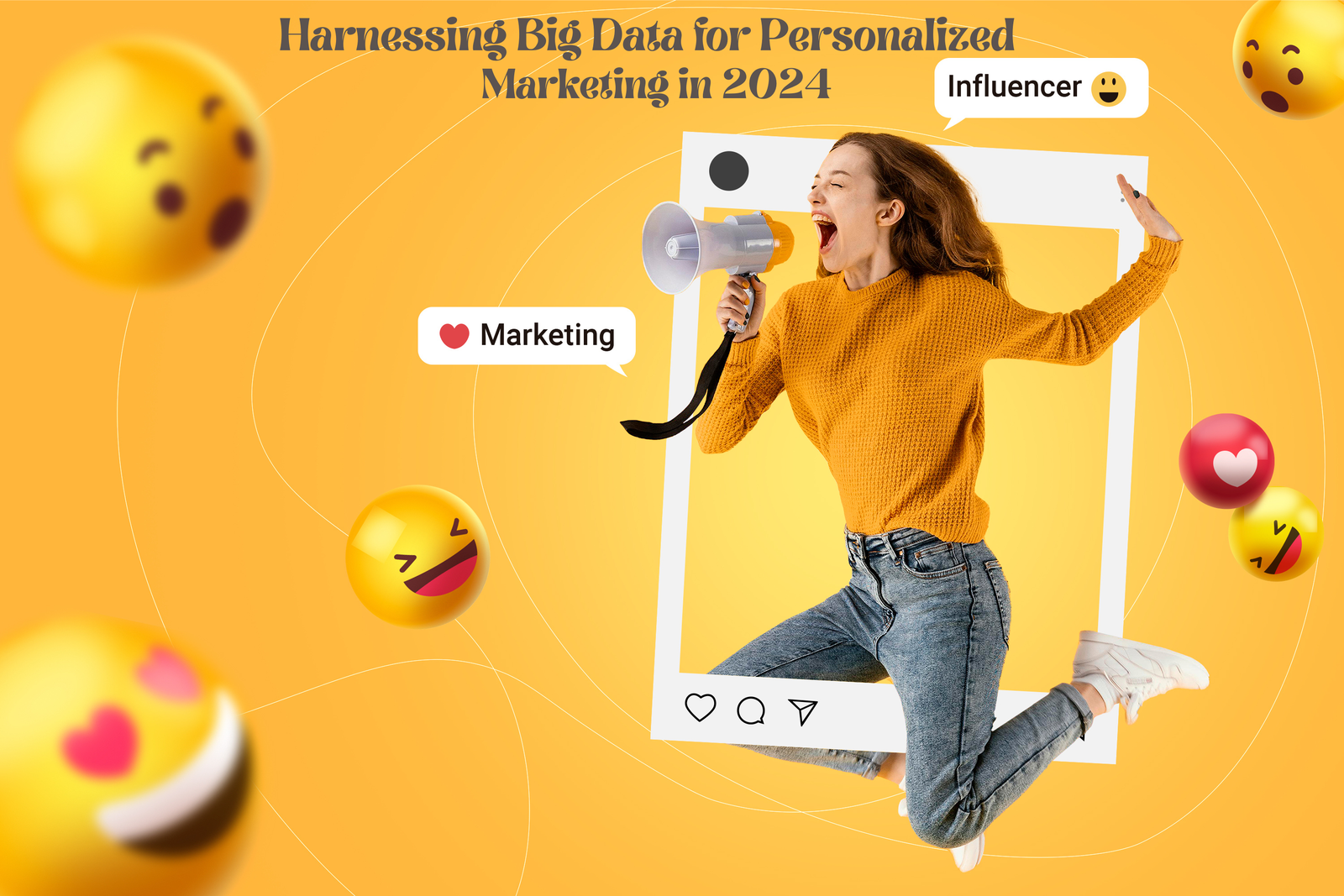Introduction:
In the ever-evolving landscape of digital marketing, harnessing the power of big data has become a strategic imperative for businesses aiming to stay ahead of the curve. The year 2024 marks a pivotal moment in the realm of personalized marketing, where advancements in technology and data analytics are converging to create unprecedented opportunities for tailoring marketing efforts to individual preferences. Big data, characterized by its vast volume, velocity, and variety, provides marketers with the raw material needed to craft highly targeted and personalized campaigns that resonate with consumers on a personal level.
The Evolution of Personalized Marketing:
As we delve into the heart of 2024, it’s crucial to reflect on the evolution of personalized marketing. The journey began with segment-based approaches that grouped consumers based on broad characteristics. However, the limitations of such strategies became apparent as they failed to capture the nuances of individual preferences. Enter big data, a paradigm shift that brought about a seismic change in the way marketing is conceptualized and executed.
1. The Role of Big Data in Personalized Marketing:
1. Data-driven Customer Insights:
The cornerstone of personalized marketing in 2024 is the ability to derive meaningful insights from vast datasets. With advanced analytics tools, businesses can analyze customer behavior, preferences, and interactions across multiple touchpoints. This granular understanding of the customer journey enables marketers to create highly targeted campaigns that align with individual preferences.
2. Predictive Analytics:
Predictive analytics, powered by big data, empowers marketers to anticipate customer needs and behaviors. By leveraging machine learning algorithms, businesses can forecast future trends and customer actions, allowing for proactive and personalized engagement. This not only enhances the customer experience but also enables businesses to stay one step ahead in a dynamic market.
3. Real-time Personalization:
In 2024, real-time personalization is not just a buzzword but a fundamental aspect of effective marketing. Big data facilitates the processing of information at unprecedented speeds, enabling marketers to deliver personalized content and recommendations in real-time. Whether through dynamic website content, personalized emails, or targeted social media ads, real-time personalization ensures that the customer receives relevant information at the right moment.
2. Challenges and Considerations:
While the potential benefits of harnessing big data for personalized marketing are immense, businesses must also navigate challenges to unlock its full potential.
1. Data Privacy Concerns:
As the collection and utilization of customer data intensify, so do concerns regarding privacy. Striking the right balance between personalization and respecting customer privacy is a delicate dance that businesses must master to build and maintain trust.
2. Data Quality and Integration:
The effectiveness of personalized marketing hinges on the quality of the data being used. Inaccurate or outdated information can lead to misguided personalization efforts. Integrating data from various sources and ensuring its accuracy are ongoing challenges that businesses need to address for seamless personalization.
3. Regulatory Compliance:
In an era of heightened data protection regulations, compliance is a non-negotiable aspect of personalized marketing. Businesses must navigate a complex landscape of regulations such as GDPR and CCPA to ensure that their data practices align with legal requirements.
3. Case Studies:
Examining real-world examples of businesses successfully harnessing big data for personalized marketing offers valuable insights into best practices and strategies.
1. Amazon:
Amazon, a pioneer in personalized marketing, utilizes its vast dataset to offer personalized product recommendations to users. Through sophisticated algorithms, Amazon analyzes browsing and purchasing history to suggest products that align with individual preferences, creating a highly tailored shopping experience.
2. Spotify:
Music streaming giant Spotify leverages big data to curate personalized playlists for its users. By analyzing listening habits, genre preferences, and user-generated playlists, Spotify’s algorithms generate Discover Weekly playlists that cater to each user’s unique taste, fostering a deeper connection with the platform.
4. The Future of Personalized Marketing:
Looking ahead, the trajectory of personalized marketing is poised for further innovation and refinement. As technologies like artificial intelligence (AI) and machine learning continue to advance, the capabilities of big data in shaping personalized marketing experiences will only intensify.
1. AI-Powered Personalization:
The integration of AI into marketing processes will revolutionize personalized experiences. AI algorithms can process vast amounts of data in real-time, enabling hyper-personalization at scale. Chatbots, virtual assistants, and AI-driven content recommendations will become integral components of personalized marketing strategies.
2. Augmented Reality (AR) and Virtual Reality (VR):
Augmented Reality (AR) and Virtual Reality (VR) technologies will play a pivotal role in enhancing personalized marketing experiences. Businesses can use these technologies to create immersive and personalized brand interactions, allowing consumers to visualize products in their own space or engage with personalized virtual experiences.
Conclusion:
In the dynamic landscape of digital marketing, harnessing big data for personalized marketing in 2024 is not just a strategy; it’s a necessity. The ability to understand, predict, and respond to individual customer preferences is a competitive advantage that can no longer be ignored. As we navigate the complexities of data privacy, quality, and compliance, businesses that successfully integrate big data into their marketing strategies will forge deeper connections with their audience, drive customer loyalty, and stay at the forefront of innovation.
The future of personalized marketing is not a one-size-fits-all approach; it’s a tailored experience crafted through the intricate weaving of data, technology, and a deep understanding of the individual. As businesses continue to unlock the potential of big data, the journey towards a truly personalized marketing landscape unfolds, promising a future where every interaction is a bespoke engagement, leaving a lasting impact on the customer and the brand alike.
If you want to take help to get more engagement on Instagram or to optimize your Instagram profile, you can also consult Digital SunBird for all kinds of assistance at a reasonable price.
